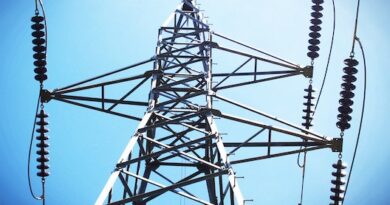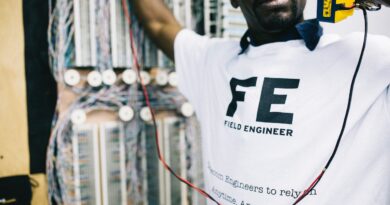Protect Your Space: Top Tips for Successful Electrical Safety Inspections in Faridabad
Introduction
When it comes to electrical safety, conducting regular inspections is crucial to ensure the well-being of your space and its occupants. In Faridabad, a bustling city in India, where electricity is an essential part of daily life, it becomes even more important to prioritize electrical safety. In this article, we will explore the top tips for conducting successful electrical safety inspections in Faridabad, providing you with the knowledge and guidance to protect your space effectively.
Table of Contents
- Understanding the Importance of Electrical Safety Inspections
- Preparing for the Inspection Process
- Evaluating Electrical Systems and Components
- Ensuring Compliance with Electrical Codes and Standards
- Identifying Potential Hazards and Taking Corrective Actions
- Proper Maintenance and Regular Inspections
- Training and Education for Electrical Safety
- The Role of Professionals in Electrical Safety Inspections
- Common Electrical Safety Issues in Faridabad
- Ensuring Electrical Safety in Residential Spaces
- Promoting Electrical Safety in Commercial and Industrial Environments
- Implementing Safety Measures in Educational Institutions
- Electrical Safety in Healthcare Facilities
- Safety Guidelines for Construction Sites
- Conclusion
1. Understanding the Importance of Electrical Safety Inspections
Electrical safety inspections are essential to prevent electrical accidents, fires, and other hazards. These inspections help identify potential risks, ensure compliance with safety standards, and maintain a safe environment for everyone. Regular inspections can significantly reduce the chances of electrical failures, equipment malfunctions, and electrical-related incidents.
2. Preparing for the Inspection Process
Before conducting an electrical safety inspection, proper preparation is crucial. It involves gathering necessary documentation, reviewing electrical system specifications, and creating a checklist of areas to assess. This step ensures a smooth and efficient inspection process.
3. Evaluating Electrical Systems and Components
During the inspection, electrical systems and components need to be thoroughly evaluated. This includes assessing wiring, circuit breakers, distribution panels, grounding systems, and any other electrical equipment present. Identifying any signs of wear and tear, loose connections, or faulty installations is essential to prevent potential risks.
4. Ensuring Compliance with Electrical Codes and Standards
Compliance with electrical codes and standards is a fundamental aspect of electrical safety inspections. The inspector needs to verify that the electrical systems and installations adhere to the applicable codes and regulations. This ensures that the electrical infrastructure is designed and maintained in a safe and reliable manner.
5. Identifying Potential Hazards and Taking Corrective Actions
The inspection process aims to identify potential electrical hazards and take appropriate corrective actions. This may involve repairing or replacing faulty components, addressing inadequate wiring practices, or implementing additional safety measures. Promptly addressing these hazards significantly reduces the risk of accidents and ensures a safe environment.
6. Proper Maintenance and Regular Inspections
Maintaining electrical systems regularly is crucial to ensure long-term safety. Routine inspections, including visual checks, testing, and preventive maintenance, should be performed at regular intervals. These practices help identify any emerging issues and address them promptly, preventing more significant problems in the future.
7. Training and Education for Electrical Safety
Educating individuals about electrical safety is vital to create awareness and promote responsible practices. Providing training programs, workshops, and educational resources helps equip individuals with the knowledge required to identify potential hazards, understand electrical safety guidelines, and take appropriate actions in case of emergencies.
8. The Role of Professionals in Electrical Safety Inspections
Electrical safety inspections should ideally be conducted by trained professionals with expertise in electrical systems and safety regulations. These professionals possess the necessary knowledge to identify potential risks accurately and provide guidance on implementing effective safety measures.
9. Common Electrical Safety Issues in Faridabad
In Faridabad, like any other city, there are specific electrical safety challenges that need to be addressed. These may include outdated electrical infrastructure, overloading of circuits, inadequate grounding systems, or non-compliance with safety standards. Being aware of these issues enables individuals to take proactive steps to mitigate the risks.
10. Ensuring Electrical Safety in Residential Spaces
Residential spaces require special attention to ensure electrical safety for occupants. Inspecting residential electrical systems involves evaluating wiring, outlets, switches, and other components. Ensuring proper grounding, installing residual current devices (RCDs), and raising awareness about safe electrical practices are crucial steps for residential electrical safety.
11. Promoting Electrical Safety in Commercial and Industrial Environments
Commercial and industrial environments often have complex electrical systems that require thorough inspections. These inspections focus on verifying proper installation, assessing wiring integrity, checking emergency lighting and fire alarms, and ensuring compliance with occupational safety regulations. Regular inspections help prevent workplace accidents and promote a safe working environment.
12. Implementing Safety Measures in Educational Institutions
Electrical safety inspections in educational institutions play a vital role in safeguarding students, teachers, and staff. Inspectors assess classrooms, laboratories, electrical equipment, and emergency systems. They identify potential risks and recommend safety measures, such as installing safety switches, ensuring proper earthing, and raising awareness about electrical safety among students.
13. Electrical Safety in Healthcare Facilities
Hospitals and healthcare facilities require uninterrupted and safe electrical supply to provide optimal care. Inspections focus on backup power systems, life-saving equipment, electrical grounding, and adherence to medical electrical standards. Ensuring electrical safety in healthcare facilities is critical to prevent disruptions in patient care and maintain a secure environment.
14. Safety Guidelines for Construction Sites
Construction sites pose unique electrical safety challenges due to temporary electrical installations, heavy machinery, and potential exposure to weather elements. Inspections in construction sites involve verifying proper grounding, assessing temporary power systems, and ensuring compliance with safety regulations. Strict adherence to safety guidelines reduces the risk of accidents and promotes a secure working environment.
15. Conclusion
Prioritizing electrical safety inspections in Faridabad is essential for creating a secure environment for residents, businesses, and institutions. By understanding the importance of inspections, preparing adequately, identifying potential hazards, and taking corrective actions, we can significantly reduce the risks associated with electrical systems. Remember, regular inspections and proper maintenance are key to ensuring long-term electrical safety.
FAQs
- Why are electrical safety inspections necessary? Electrical safety inspections are necessary to identify potential risks, ensure compliance with safety standards, and maintain a safe environment.
- Who should conduct electrical safety inspections? Electrical safety inspections should ideally be conducted by trained professionals with expertise in electrical systems and safety regulations.
- What are the common electrical safety issues in Faridabad? Common electrical safety issues in Faridabad may include outdated electrical infrastructure, overloading of circuits, inadequate grounding systems, or non-compliance with safety standards.
- How often should electrical systems be inspected? Electrical systems should be inspected regularly as part of routine maintenance. The frequency of inspections may vary depending on the type of space and its usage.
- What steps can be taken to ensure electrical safety in residential spaces? Steps to ensure electrical safety in residential spaces include proper grounding, installation of residual current devices (RCDs), and raising awareness about safe electrical practices among residents.




